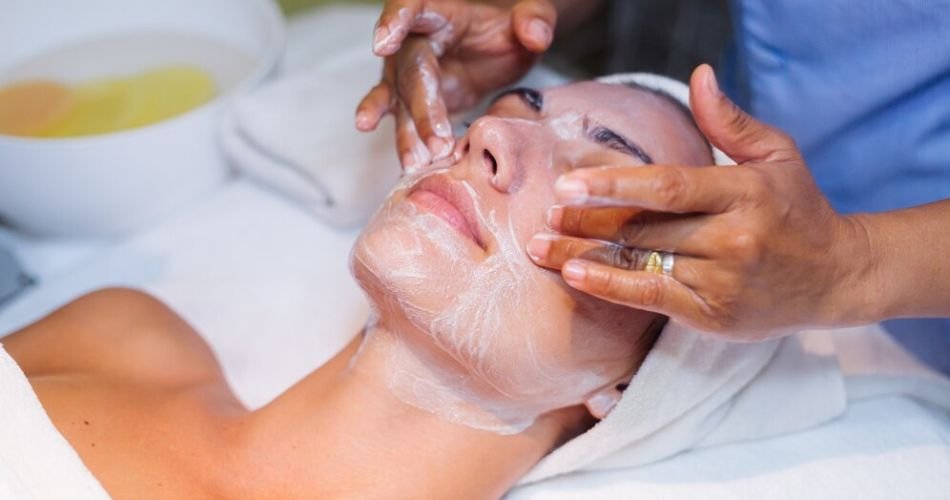Many people find themselves puzzled, asking, why is my skin shiny but not oily, especially when their face reflects light but doesn’t feel greasy to the touch. This shine is often a result of factors like smooth skin texture, proper hydration, or the way light interacts with the surface of your skin. When your skin is healthy and well-maintained, it can naturally appear luminous without producing excess oil. Unlike oily skin, this kind of shine doesn’t clog pores or cause breakouts. Understanding why is my skin shiny but not oily helps you recognize the difference between unwanted greasiness and a healthy, glowing complexion.
The Role of Light Reflection and Skin Texture in Creating Shine
One major reason why your skin appears shiny is how it reflects light. Smooth and tight skin surfaces tend to reflect light more directly, giving the impression of a glossy or glassy appearance. This kind of shine has nothing to do with oil but everything to do with how even your skin’s texture is. If your skin is well-exfoliated, free of bumps, and generally smooth, it can reflect light more intensely—especially under artificial lighting or sunlight. This reflection can make your skin look polished, even though there’s no oil present. In fact, this is often seen as a sign of healthy, youthful skin.
How Skin Hydration Can Mimic an Oily-Looking Glow
Hydration plays a huge role in the overall appearance of your skin. When your skin is well-hydrated, especially with water-based moisture, it can plump up and appear luminous. However, that same hydrated look may also create a slightly dewy or shiny finish that resembles oiliness. On the flip side, when your skin is dehydrated (lacking water), it can become tight and over-reflective, especially when paired with a compromised skin barrier. In either case, you might see shine on your face without any greasy residue, leading to confusion over whether your skin is oily or simply moisturized.
How Over-Exfoliation Can Cause a Shiny Yet Dry Appearance
Many people aiming for smoother or clearer skin exfoliate regularly, but too much exfoliation can remove essential oils and strip the protective layer of the skin. What’s left behind is skin that appears ultra-smooth and almost plastic-like. This polished look reflects light evenly and results in a shine that may be mistaken for oiliness. However, over-exfoliated skin is often dry and irritated, not oily. In fact, this shine is a sign that your skin barrier may be damaged and lacking the natural texture and hydration that balances its overall look.
Understanding the Impact of Skincare Products on Skin Shine
Skincare products can also contribute to this mystery shine. Many moisturizers, especially those containing silicone-based ingredients like dimethicone, leave a film over the skin that reflects light. Similarly, serums or lotions with reflective ingredients such as mica or pearl powder can add an intentional glow. These products create a visible shine that isn’t related to oil production. Even sunscreen can sometimes leave a sheen, especially physical sunscreens with ingredients like zinc oxide or titanium dioxide. If you notice your skin looks shinier after applying skincare but doesn’t feel greasy, your products might be playing a significant role.
The Subtle Influence of Genetics on Skin’s Reflective Nature
Your DNA also plays a key part in determining how your skin behaves. Some people are genetically predisposed to have skin that appears more luminous, regardless of oil production. If your skin is naturally firm and has tight pores, it may reflect more light and appear shinier. This isn’t a flaw; it’s simply part of your skin’s natural structure. Additionally, younger individuals tend to have shinier skin due to higher collagen levels and a more efficient hydration barrier, while older individuals might notice a loss of shine as skin becomes thinner and less elastic.
The Environmental Factors That Exaggerate Shine
Environmental conditions such as humidity, heat, and lighting can significantly alter how shiny your skin appears. In high humidity, even non-oily skin can look more reflective due to increased moisture in the air, which swells the skin slightly and smooths out its surface. Bright lighting, especially fluorescent or overhead lights, tends to accentuate any reflective quality of the skin, making it look shinier in photos or mirrors. This shine is not a sign of oil production but rather a reaction to your surroundings, which can change from day to day.
Lifestyle Habits That May Be Increasing Skin Shine
Your lifestyle choices can also influence whether your skin appears shiny. Not drinking enough water can dehydrate your skin, causing it to tighten and look overly reflective. At the same time, high sugar intake or processed foods can lead to internal imbalances that show up as shiny patches. If you’re under stress, hormonal changes may also affect your skin’s appearance, not necessarily by producing oil but by altering blood flow and water retention. These lifestyle elements create a glow or sheen that isn’t linked to grease but to internal wellness and hormonal activity.
Skin Type Confusion: How to Know If You’re Oily or Just Glowy
One of the best ways to determine whether your skin is actually oily is by using the blotting paper test. Press a blotting sheet gently against different areas of your face—particularly the T-zone. If little to no oil appears on the sheet but your skin still looks shiny, your skin is not oily. Rather, it may be well-hydrated, overly exfoliated, or naturally light-reflective. Another method is how your skin feels. Oily skin often feels greasy or slick, especially by midday. In contrast, shiny-but-not-oily skin tends to feel dry, smooth, or even tight, despite the glossy appearance.
The Common Mistakes People Make When Treating Shiny Skin
Many people mistakenly assume that all shine equals oil and respond with harsh cleansers, stripping toners, or mattifying products. Unfortunately, these approaches can worsen the problem by drying out the skin and compromising the moisture barrier. This leads to even more shine as the skin tries to balance itself. Additionally, skipping moisturizer altogether or choosing alcohol-heavy products can leave your skin shiny from dehydration rather than helping the issue. Choosing products without understanding your true skin type can often backfire, making your skin look even shinier and more irritated over time.
Choosing Skincare That Nourishes Without Causing Extra Shine
To reduce unwanted shine while maintaining skin health, opt for gentle, hydrating products that don’t leave behind a greasy film. Look for ingredients like hyaluronic acid, glycerin, niacinamide, and squalane. These hydrate the skin deeply without clogging pores or adding to surface shine. Avoid heavy occlusives or oils if your skin doesn’t need them. Instead, use gel-based moisturizers that hydrate from within. Applying a lightweight, oil-free SPF during the day will also protect your skin while preventing additional shine. It’s all about finding the right balance for your skin’s unique needs.
The Reality Behind a Healthy Glow Versus an Oily Shine
There’s a clear difference between having a healthy, radiant glow and being shiny from excess oil. A healthy glow means your skin reflects light due to being well-hydrated and nourished. It doesn’t feel greasy and doesn’t cause clogged pores or acne. On the other hand, an oily shine feels slick, builds up throughout the day, and may come with breakouts. Recognizing this difference is crucial to treating your skin appropriately. Sometimes what you perceive as “too shiny” is actually just a sign that your skin is functioning well and maintaining its moisture balance.
When a Professional Evaluation Might Be Necessary
If your skin is persistently shiny and you’re unsure of the cause, especially if it’s accompanied by other symptoms like redness, itchiness, or breakouts, it may be time to consult a dermatologist. There could be underlying conditions like seborrheic dermatitis or rosacea mimicking oiliness. A professional evaluation helps identify your real skin type and provides personalized recommendations for treatment and care. Instead of experimenting with products that may not suit your skin, a dermatologist can help you create a routine tailored to your exact needs.
Embracing Your Skin’s Natural Radiance Without Worry
At the end of the day, shiny but not oily skin is not something to be alarmed about. In fact, it’s often a reflection of good hydration, smooth texture, or simply your unique skin biology. Rather than trying to eliminate shine completely, focus on maintaining a balanced, gentle skincare routine that supports your skin’s health. Accepting and understanding the real cause of your skin’s sheen will not only save you money on unnecessary products but also improve your confidence in your natural glow.
Conclusion
Understanding why is my skin shiny but not oily can save you from using the wrong products and damaging your skin’s natural balance. That shine you notice might actually be a sign of good hydration, smooth texture, or healthy skin—not excess oil. Instead of fighting it with harsh treatments, embrace the glow and support it with gentle, nourishing skincare. Recognizing the real reason behind your skin’s appearance allows you to care for it more effectively. So next time you see that shine, remember—it might just be your skin at its best.




